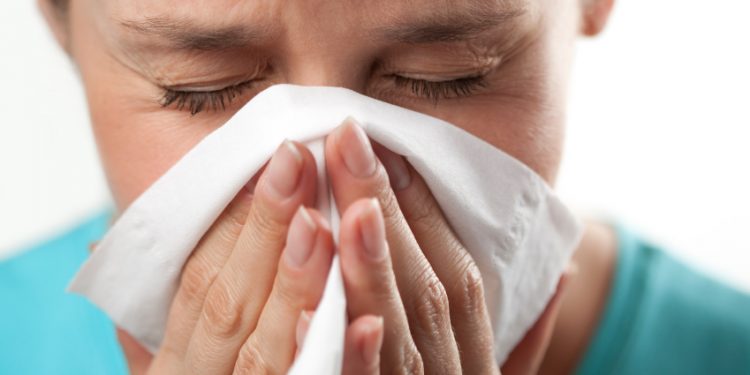The changing of seasons can bring about the onset of colds, viruses, and even flus. Much like working out with covid, there are a lot of questions to consider when working out while sick. Some of these illnesses can last several weeks, sidelining your hard work. Myths from “sleep it off” to “work it out” are plentiful. What is the right recommendation? Does regular exercise help prevent such illnesses? This article will examine the research to dispel the myths and offer some practical guidelines.
Let’s start with the average healthy person working out 3-6 days/week.
Does exercise improve immunity over time or reduce it? Walsh et al., conducted extensive research in immunology that supported some types of exercise as immunity-enhancing (4). Regular moderate exercise training can improve immune function, and this benefit is particularly remarkable in compromised populations such as older adults, or people under chronic stress (4).
However, an episode of acute intense exercise depresses immune function for 24 hours (4). If the intense exercise is repeated regularly, the depressed immune function can become more chronic (4). This decreased immunity is not only a function of cellular changes, but the chronic stress also changes the hormonal activity via the hypothalamic-pituitary-adrenal axis (4). In particular, the chronic rise in cortisol depresses immune function (1).
Now that we’ve examined the normal immune response of a healthy person, let’s examine the exercise recommendations for when you have an illness.
The fitness enthusiast or athlete with an illness.
Martin et al., conducted extensive research and literature reviews with “evidence to support the hypothesis that moderate intensity exercise reduces inflammation and improves the immune response to respiratory viral infections” (3).
Ultimately, prolonged, intense exercise causes immunosuppression, while moderate intensity exercise improves immune function and potentially reduces risk and severity of respiratory viral infections; this occurs both when infection is not present, as well as when infection is present (3).
If you are going to exercise while sick, Dr. Laskowski of the Mayo Clinic provides the following recommendations (2):
- Avoid exercise if you have a fever, symptoms below your neck (i.e. muscle pain or chest discomfort)
- Decrease intensity and duration
You should wait to resume intense training until a few days after the resolution of the upper respiratory infection (1).
If a viral infection does have symptoms throughout the body (i.e. fever, muscle aches, chest congestion) exercise is contraindicated (1, 2). Some viruses have a tendency to invade heart muscle and increase cardiac complications even in healthy people; others have been shown to increase the risk of other serious illnesses such as meningitis and rhabdomyolysis (1). If these systemic symptoms are present, you should wait 2-4 weeks before achieving your previous full intensity of exercise again (1).

Visit NASM's Partner School Page to learn more about Lifetime Academy.
By: Meredith Butulis, DPT, CIMP, ACSM HFS, NASM-CPT, CES, PES, BBU Pilates,
Life Time Academy Instructor
References:
1. Brooks, GA, Fahey, TD, and Baldwin, KM. Exercise Physiology: Human Bioenergetics and Its Applications. 4th Ed. 2005. McGraw Hill: Boston, MA.
2. Laskowski, ER. (n.d.). Is it OK to exercise if I have a cold? Mayo Clinic. Retrieved from: http://www.mayoclinic.org/exercise/expert-answers/faq-20058494
3. Martin, S, et al (2009). Exercise and respiratory tract viral infection. Exerc Sport Sci Rev. 2009 October; 37(4): 157–164. Retrieved from: http://www.ncbi.nlm.nih.gov/pmc/articles/PMC2803113/
4. Walsh, NP, et al. Position statement: part one: immune function and exercise. Exerc Immunol Rev. 2011;17:6-63. Retrieved from: http://www.medizin.uni-tuebingen.de/transfusionsmedizin/institut/eir/content/2011/6/article.pdf
Image retrieved from: http://www.cochrane.org/features/widespread-media-coverage-cochrane-review-zinc-common-cold
4.8.14

















